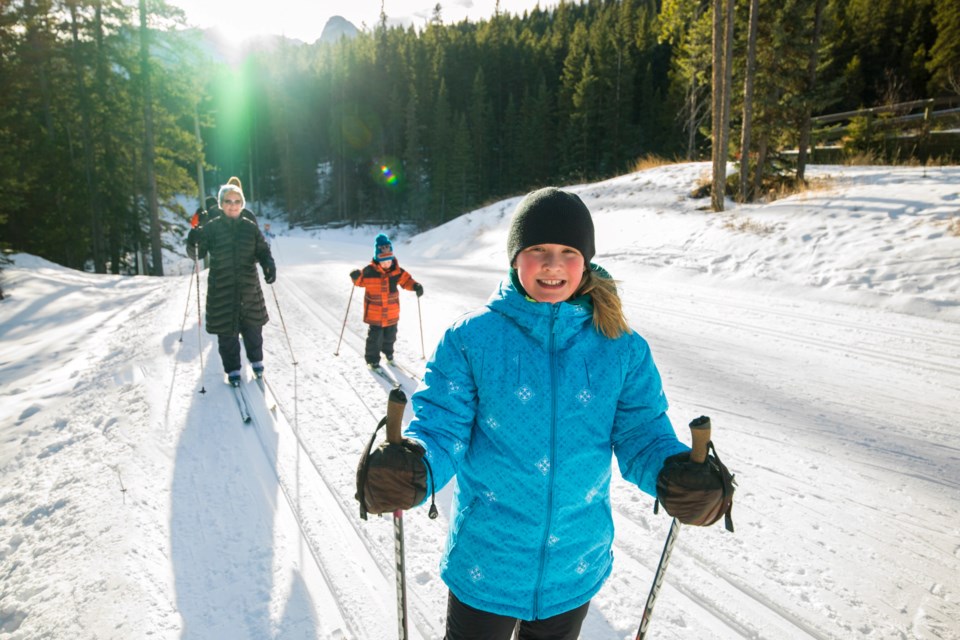To give a feel-good gift that keeps on giving this holiday season, look no further than your own backyard, say two University of Alberta recreation experts.
Sharing recreational experiences — whether it’s the gift of pool passes or tickets to a local play — benefits the lucky recipient, the giver and the entire community.
“Having a local experience indoors or outdoors provides a meaningful opportunity,” said U of A professor Glen Hvenegaard, of Augustana Campus.
“You can learn about the place in which you live and work, share and relive that experience with others who go with you, develop new skills and interests that you can return to, and that are relevant here, where we live.”
Local leisure supports local economies
Gifting local leisure experiences also boosts local business, adds Elizabeth Halpenny, a tourism and recreation professor.
“It’s a good way to support recreational facilities or cultural groups, and to keep money from leaking out of the local economy.”
A U of A study showed visitors who attended an Alberta Open Farm Days festival were inspired enough to buy locally produced foods up to a year later, Halpenny notes.
Small tourism-based businesses like restaurants, hotels and tour operators also depend heavily on local shoppers in the off-season, which offers a good opportunity for a staycation, Hvenegaard says.
“Locally, you can pick and choose and find times that are less busy; that opportunity offers a more intimate leisure experience.”
It can help you appreciate what you have
Gifting local experiences invites residents to discover what’s unique about their own communities, Halpenny notes.
“You get to know the area and become kind of an expert, and a pioneer spirit in your own backyard, which gives an opportunity to become an ambassador and advocate for your destination, through things like social media.”
Alberta’s parks, heritage buildings and nature centres also offer ways for people to enjoy themselves at low or even no cost.
“In Alberta’s provincial parks, for example, people learn a lot, they have fun, they get more connected to place, and it’s all here waiting — we just have to take advantage of it,” said Hvenegaard, who along with Halpenny is leading a five-year research project at the U of A to explore the positive impact park interpretation has for visitors.
Taking part in local recreation also strengthens the social fabric of a community, Halpenny says.
“If we are patronizing live performances or other arts-based activities, we’re celebrating the production and exchange of distinct cultures in our community, and that brings places alive. It contributes to the overall vibrancy of a city or a region.”
Getting out is good for you
Giving local experiences is a gift for body and soul, too.
Activities like visiting the U of A Botanic Garden or attend an evening festival, “are supportive events that celebrate our cold winter evenings and get people out walking around and interacting with others, which is health-inducing,” Halpenny said.
The social opportunities recreational activities afford also push people “out of their daily routine bubble."
“Exploring interesting venues expands our personal horizons, we learn more, we get deeply embedded in the place we live and we celebrate it more.”
Gifting passes for recreational facilities also encourages physical activity, especially when the gift-giver buddies up and goes along to enjoy it with their friend.
“It means we are creating memories together and there’s a support system built in; maybe in some cases we’re even passing on some cultural capital, if we can share with a newcomer how to ski and take care of their equipment,” said Hvenegaard.
It’s good for the environment
Staying local is also healthy for the environment, by lowering the carbon footprint that is part of long-distance travel, Hvenegaard notes.
“It feels good to be doing something for the planet.”
And for those craving faraway places, there’s a sustainable way to gift people with the exotic, through offerings like virtual tours of world heritage sites or wildlife sponsorships, Halpenny suggests.
“We can still have a great touristic experience but enjoy it from the comfort of home, especially when we are sharing it with others.”
Courtesy of University of Alberta folio



